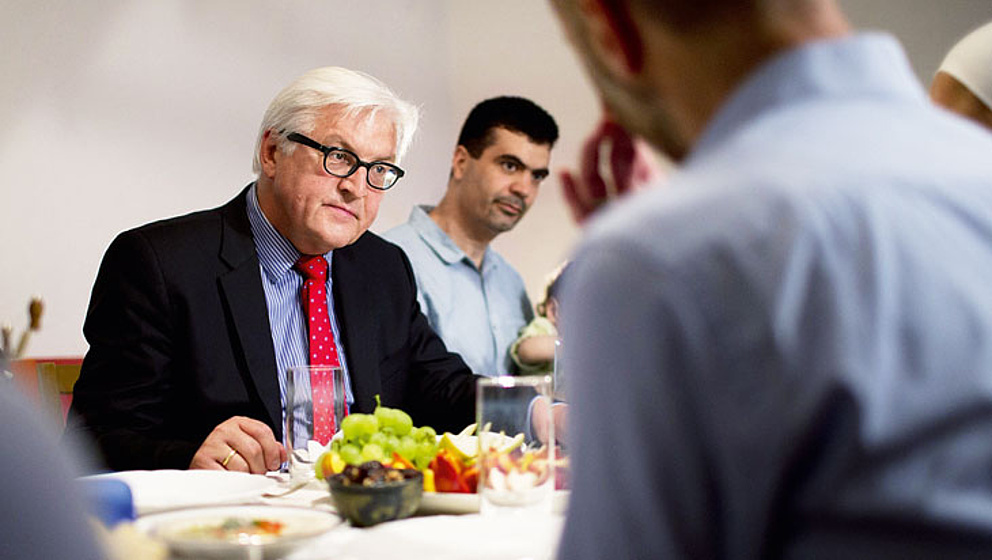Jump to the content
- {{#headlines}}
- {{title}} {{/headlines}}

Whether we think of the civil war in Syria, which has now entered its sixth year, or IS terror, which has spread as far as Europe, or the continuing destabilisation of the Eastern Ukraine – the many crises and conflicts in a world bereft of an over-arching order are occurring thick and fast.
Around the world, more than 60 million people are currently fleeing their countries, more than at any time since the end of the Second World War. They are seeking sanctuary from war and violence, many of them from personal threat and persecution, as well. This is particularly true of scientists and scholars, students and intellectuals who are often courageous enough to use their academic work to condemn abuses in their own countries and are therefore a particular target for state violence and oppression. It is thus all the more important to offer these people prospects outside their own countries.
Through the Philipp Schwartz Initiative, we enable persecuted researchers to continue their work free of threat in order to be able to assume responsibility for a better future in their own countries at a later time. Together with the Alexander von Humboldt Foundation, we are sending a clear message that protecting persecuted researchers in a conflict- ridden world is a long-term task that we are specifically addressing with the tools of foreign cultural and educational policy. Against the backdrop of our own history, Germany has a special responsibility which we are gladly assuming. The man after whom this initiative is named, the Jewish pathologist Philipp Schwartz, had to flee himself in the 1930s: from the National Socialists, from Germany – because he was a Jew. In exile, he founded the Notgemeinschaft deutscher Wissenschaftler im Ausland (Emergency Society of German Scholars Abroad). Thanks to his activities, hundreds of researchers managed to find positions abroad. Thus it is only right and fitting that we should be the ones to help persecuted researchers today.
Just how important this initiative is, becomes even clearer when one hears the moving accounts of the fellows’ personal fates, especially of those like the Syrian Professor of Geography, Hussein Almohamad from Aleppo, who had to conduct their research under the most extreme conditions and who barely managed to escape with their lives.
I am, therefore, very pleased that, in July 2016, the first 23 fellows received fellowships to start working at German universities and that at the beginning of 2017, over 40 more endangered researchers are due to come to Germany to continue their research here.
The potential this holds for both sides, fellows and universities, is enormous. When an archaeologist from Damascus or a social scientist from Düzce conduct research and teach at their host institutions, their own personal experiences help to broaden our horizons and to engender a consciousness for the situation of displaced and threatened researchers.
At the same time, the Philipp Schwartz Initiative offers fellows the opportunity to network, both with one another and internationally, in order to be able to take on responsibility once again when they return home. Hussein Almohamad is a good example: in spring 2016, his host university in Giessen organised a conference on Syria – he himself has become a central point of contact for the network of Syrian geographers it generated. These geographers are engaged in making plans for the reconstruction of Syria when the war comes to an end. Professor Abdulrahman, former Director of the Department of Archaeology at Damascus University, who will spend two years working on research and teaching at the University of Tübingen, also hopes that, one day, he will be able to help rebuild his country’s cultural artefacts destroyed by the IS militias.
The Philipp Schwartz Initiative is just one of several building blocks in our work in cultural and educational crisis situations. Nevertheless, it stands for the freedom of science, the protection of cultural identity, scientific networking and, last but not least, humanity in action. For these reasons, the Philipp Schwartz Initiative makes an indispensable contribution to offering endangered researchers prospects for the future – and as such for their own countries, as well.
